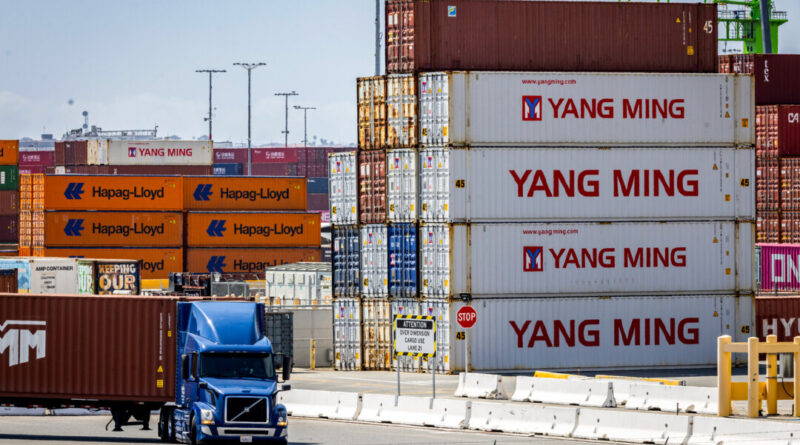Expert Predicts Trump’s Tariffs May Close Transshipment Loopholes in China’s Trade Practices
“It’s quite logical when your goal is to ensure that no one can circumvent these regulations,” stated China authority Gordon Chang during a recent interview.
According to American columnist and author Gordon Chang, President Donald Trump’s extensive tariffs on various nations are intended to close trade loopholes exploited by China, particularly through the practice of transshipment, which involves exporting goods through a third country to avoid tariffs.
This technique allows Beijing to transport its goods to the United States via another country while altering the bill of lading to falsely indicate that the goods originated from that country, he noted.
Chang asserted that Trump’s tariffs will effectively close this loophole and inhibit other nations from assisting China in evading them.
“Several nations have participated in this process. It’s deceitful,” Chang remarked to host Jan Jekielek. “What Trump is doing is essentially terminating that system. This is a positive move because we need to standardize trade.”
This included a 34 percent reciprocal tariff on imports from China, increasing the overall tariff on Chinese goods to 54 percent. Trump stated that these measures were essential for restoring trade equilibrium, having accused various countries of exploiting the U.S. through unfair trade tactics.
While Chang noted that many individuals might oppose the imposition of tariffs, he emphasized that it was “almost unavoidable” due to the “failure to uphold the norms of the previous system.”
“It’s very reasonable when the aim is to ensure that everyone adheres to these regulations,” he said. “China has been adept at circumventing them. This includes not just the deceptive bills of lading we discussed, but also setting up manufacturing plants in other countries and subsequently shipping goods to the United States.”
Chang noted that the tariffs will help in ensuring that U.S. importation regulations—such as those addressing forced labor and trade manipulation—are effectively enforced.
“Trump has rightly pointed out that some of the most aggressive trade practices come from our friends and allies. Therefore, he decided to challenge everyone simultaneously,” he stated.
Although Chang indicated a preference for a different approach by the administration, he reinforced the significance of finally addressing the trade concerns that previous administrations had allowed to persist over the years.
Trump’s overarching tariffs have sparked fluctuations in U.S. and global markets, with S&P 500 stock futures dropping by 4 percent and the Dow Jones declining by 3.8 percent on April 6.
Despite this, Chang remains hopeful, suggesting that stock markets usually recover after a sharp drop.
In retaliation for Trump’s tariffs, Beijing has instituted a 34 percent tariff on U.S. exports and imposed export restrictions on specific rare-earth minerals.





